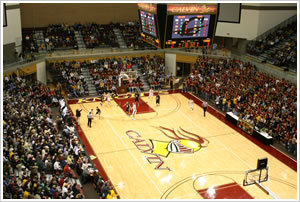Introduction
Calvin College first opened its doors in Grand Rapids, Michigan in 1876 as part of the Christian Reformed Church. The Christian Reformed Church follows three principles: Its members believe in Jesus; the church is considered reformed because it evolved from the Protestant Reformation; and they are believers of God, who together in their belief have created a church.
Since its inception more than a century ago, the college has written a storied history. In its early days, it was a ministerial institution but in 1894 it became a college, expanding its curriculum and opening its doors to a wide range of learners. In 1921, the school awarded its first bachelor’s degree.
A school that started with only seven students, the population ballooned to 450 students before World War II and then to 1,270 students in 1950. Today, it is home to almost 4,000 students. As emphasized in its mission statement:
Calvin College is a comprehensive liberal arts college in the Reformed tradition of historic Christianity. Through our learning, we seek to be agents of renewal in the academy, church, and society. We pledge fidelity to Jesus Christ, offering our hearts and lives to do God’s work in God’s world.
When not participating in on-campus activities, including daily worship, students have Grand Rapids, which has been named the third best city for things to do, in their backyard. Outdoor activities – from lounging at the beach on warm days to golfing and skiing – abound in Grand Rapids while students looking for culture can opt for visits to the Gerald R. Ford Presidential Museum or the Frederik Meijer Gardens & Sculpture Park.



